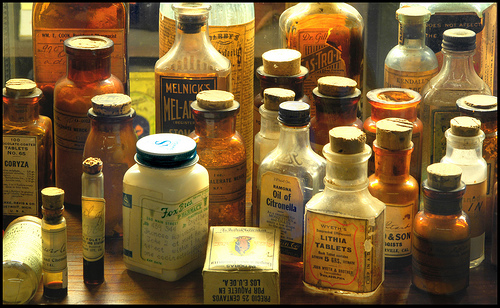PATIENTHOOD IN HISTORY AND SOCIETY
History has an important role to play in future debates concerning therapeutic relationships. Roles played by patients and physicians reflect the dynamic character of all human relationships. Simple “topdown“ models of interaction should be replaced with more nuanced accounts that focus on the complexity and diversity of motives, interests and understandings. Today, we are struggling with conflicting models on how to negotiate authority in medicine. The patient’s plight has only recently become an important topic for historical research. Traditional accounts have disproportionally focused on the lives, ideas and achievements of “great doctors”. In his 1985 essay “The Patient’s View: Doing Medicine from Below’, Roy Porter suggested the development of an alternative history of medicine written from the patient’s point of view. Highlighting some of the shifting definitions and meanings of patienthood offer valuable insights into current health care dilemmas.
My own professional journey has closely paralleled Porter’s approach. Most of my published work in the past three decades, including two books on hospital practice and therapeutics, and several published essays that can be considered patient-centered.
A few years ago, I also had the opportunity to be a year-long member of an interdisciplinary working group sponsored by the Hastings Center in Garrison, New York. The so-called “Rippel“ Project dealt with the role of the clinician-patient relationship in cancer care and research, and my role was to prepare a paper explaining the contexts and microethics of the new American patient-physician relationship, especiallly in relation to the care of cancer patients.
Stimulated by past and present patient narratives, I prepared a broad overview concerning the evolution of patienthood “from sinfulness to autonomy“ covering a period from preliterate societies to the present. This unpublished essay will serve as a blueprint for searching for additional historical voices and explore issues of class, gender and ethnicity shaping therapeutic relationships within various cultural contexts. Further work on this topic is planned, including an examination of patients afflicted with the often bizzare Munchausen syndrome.
ECOLOGICAL AND HISTORICAL PERSPECTIVES ON HEALTH, DISEASE AND HEALING
The history ofhealth and disease has a rich historical tradition extending back to antiquity. Long an interest of medical historians, the history of diseases has recently been placed into much more complex biological and social contexts. New scientific discoveries have exposed the unprecedented scope and complexity of the interactions between humans and the environment. . Should historians attempting to reconstruct human biology in past populations by enlisting current biomedical information to possibly confirm the presence of particular infectious and chronic diseases in past populations? I believe it is time to employ new tools and evidence for a revision and expansion of our historical reconstructions. Current insights into the molecular structure of microorganisms and their interactions with human immunity have only reaffirmed the dynamic relationship between them—see the current dilemmas concerning the global threat of bird flu.
I fully realize that our current scientific criteria are also socially framed and subjected to future changes. Competing etiological hypotheses—in the case of Black Death historians discuss bubonic plague and anthrax as the most likely diagnoses—are common. Indeed, contemporary insights and conclusions are themselves subjected to an accelerated rate of change, but so is everything else being studied and analyzed. There can be no “definitive” history of health, disease and healing, but correlating, for example, DNA mapping from paleopathological specimens with textual evidence, we will learn a great deal more about the health conditions of our ancestors. Techniques such as computerized tomography and magnetic resonance imaging as well as sophisticated biochemical analyses can be extremely informative for both historians and medical researchers—witness the extraordinary window into Neolithic life provided by the recent discovery of the Tyrolean “iceman.”
The next step in the process will be to integrate the new scientifically informed history of health and disease with documented past medical efforts aimed at coping with the problem of sickness. Did specific past ecological conditions influence societal belief systems regarding notions of health and disease? If so, what kind of institutions and strategies were developed within specific political, economic and cultural contexts to deal with them? How did these systems affect cognitive and communicative processes and shaped their resulting therapeutic efforts? Where there paradigms in medicine, and if so, why did they change? What was the societal context in which such theories flourished and perished?
Such a synthesis will undoubtedly be difficult to achieve. Perhaps the employment of a selected number of case studies from the past—a strategy successfully employed in my book Mending Bodies-Saving Souls: A History of Hospitals (1999) could provide a blueprint. As one scholar recently observed, “truth depends on contexts and history is a truth-optimizing pursuit,” slowly improving as we gradually uncover more information about the complex web of causality between health, disease and healing. Can medical historians enter the arena of relevance? Can the past help inform the present and point out some of the dangers that could unravel our civilization? A few years ago, Pulitzer Prize winner Jared Diamond in his national bestseller Guns, Germs and Steel lamented the fact that “most historians do not think of themselves as scientists and receive little training in acknowledged sciences and their methodologies.” Given my own background I will attempt to bridge presumed specialized fields of knowledge. In the twilight of my career, I feel a responsibility to integrate knowledge from many disciplines and forge some kind of synthesis.
ADDITIONAL RESOURCES
American Association for the History of Medicine - Abstract
A luncheon Session is scheduled for the 80th annual meeting of the American Association for the History of Medicine, to be held in Montreal, Canada, 3-6 May 2007.
Chair: Guenter B. Risse
HISTORY IN THE POST-GENOMICS ERA: NEW PERSPECTIVES ON HEALTH, DISEASE, AND MEDICINE

